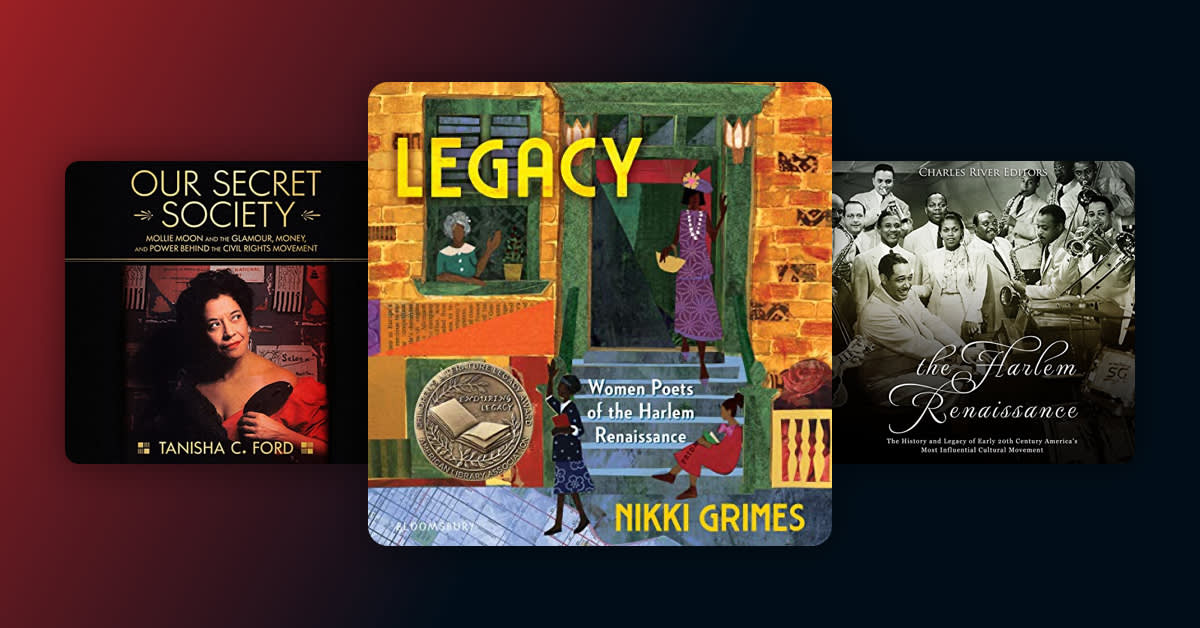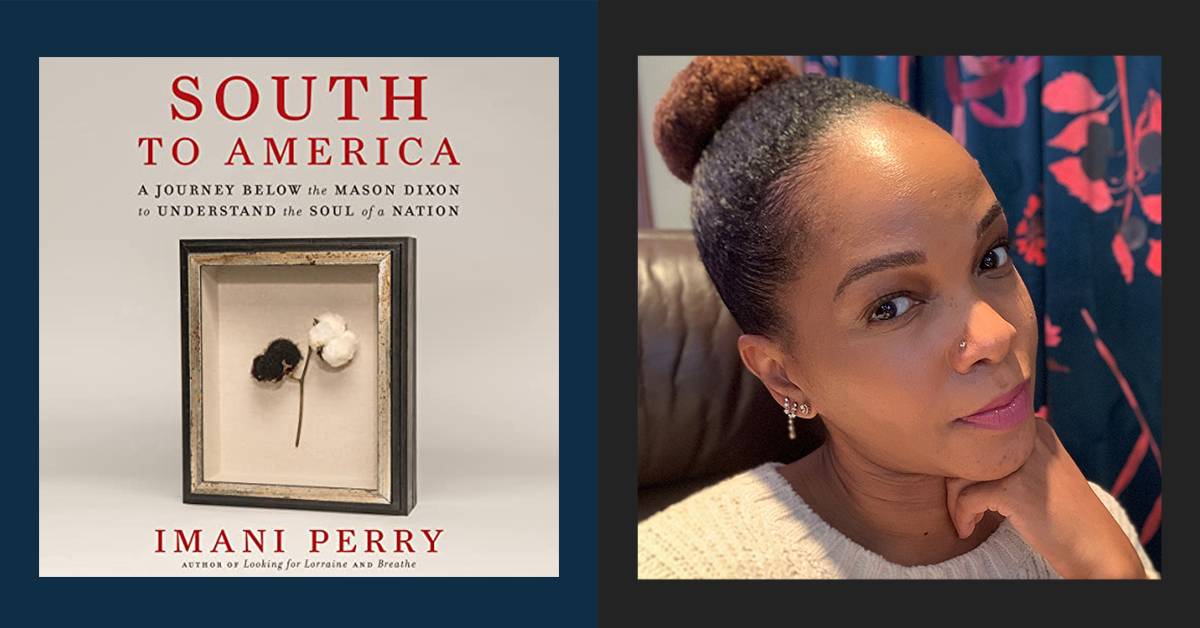Can you imagine what it must’ve been like to sit on an overstuffed, elegant sofa in A’Lelia Walker’s beautiful home? She was the daughter of Madame C.J. Walker, a philanthropist and the first American woman to become a self-made millionaire. Walker's salons were legend. Maybe writers Langston Hughes and Countee Cullen would show up. No doubt if they were in town, Walker's European titled friends would be in attendance. Perhaps Zora Neale Hurston was at a table, sharpening her oyster knife. Welcome to the Harlem Renaissance—the birth of some of the most significant works of literature, music, and theater in America.
Harlem was pegged to be a neighborhood for upper-class whites, but with overdevelopment, landlords were desperate for renters. As Blacks moved in whites moved out, and Harlem, from 1918 to 1937, became one of America’s most significant cultural communities.
But the Harlem Renaissance wasn’t all about the music and glamorous evenings. There was serious business to tend to—equality, opportunity, and justice. Harlem was considered “the spiritual home of the Negro protest movement.” One couldn't stay in Harlem day in and day out; for work, school, and other daily activities, leaving the neighborhood was necessary. As in the South, Jim Crow was very much alive in New York. But the power of what was happening in Harlem—its pride and social consciousness—was infectious, and the feeling spread from coast to coast that change was coming. But then came the Great Depression and the beginning of the end of the glorious days of the renaissance.
There is so much to learn and savor about this period. It's no wonder that New York's Metropolitan Museum of Art is presenting a groundbreaking new exhibition beginning in February 2024, “The Harlem Renaissance and Transatlantic Modernism.”
From poetry to history to fiction, this lists boasts great listening on the subject. Enjoy and imagine yourself sinking into a cushy sofa at one of those fabulous salons of the Harlem Renaissance. It's all very good.
The Great Migration was the name coined for the mass movement of African Americans north of the Mason-Dixon line in the years following the Civil War and the abolition of slavery. The promise of emancipation proved to be illusory for the majority of Southern Blacks, whether free or formerly enslaved, and hundreds of thousands made use of their fundamental freedom to leave. This resulted in a “push” away from the South, caused by ongoing discrimination, Jim Crow laws, and increasing violence directed at Blacks by whites. When the war broke out in Europe in 1914, European immigration to the United States evaporated almost overnight, creating a labor vacuum in the US that created a surge in opportunities for Blacks, hence the move north where many landed in Harlem.
An engrossing social history and memoir of Mollie Moon, the stylish founder of the National Urban League Guild and fundraiser extraordinaire who reigned over the glittering "Beaux Arts Ball,” the social event of New York and Harlem society for 50 years—a glamorous event rivaling today’s Met Gala, drawing America’s wealthy and cultured, both Black and white. Tanisha Ford's Our Secret Society illuminates a little-known yet highly significant aspect of the civil rights movement that has been long overlooked—the power of fundraising to support the movement. Moon became one of the most influential philanthropists of her time: a woman feared, resented, yet widely respected.
Self Made is the first full-scale biography of Madam C.J. Walker—the legendary African American entrepreneur and philanthropist—by her great-great-granddaughter, A’Lelia Bundles. With exclusive access to personal letters and records from the family collection, she tells the story with a controlled passion and integrity. We also learn of Walker's friendships with W.E.B. DuBois and Booker T. Washington. Her beauty empire was run by four generations of Walker women until its sale in 1985.
Award-winning author Nikki Grimes's feminist-forward collection of poetry celebrates the women poets of the Harlem Renaissance. These gifted, prolific women were little known, especially as compared to their male counterparts. Grimes uses "The Golden Shovel" poetic method to create wholly original poems based on the works of these groundbreaking women.
Enjoy these classic love poems by Harlem Renaissance women authors. The journey here begins in seduction, endures trials, and ends with a hint of past wonders.
Here are poems from three major contributors to the Harlem Renaissance: The Weary Blues by Langston Hughes, The Heart of a Woman and Other Poems by Georgia Douglas Johnson, and Copper Sun by Countee Cullen, delivered by three award–winning narrators.
Countee Cullen was already a prominent literary figure when he published his auspicious debut collection of poetry. In deceptively simple verse, and in harmony with lyric tradition rather than rebellion against it, Cullen covered such complex terrain as race, faith, mortality, sexuality, and identity. He may be less well known today than his contemporaries, but his emotional candor, creative ambition, and impudent humor retain an unforgettable spark. He was one of the most distinguished voices of the Harlem Renaissance.
James Weldon Johnson's emotionally gripping novel is a landmark in Black literary history and a classic of American fiction. The first fictional memoir ever written by an African American, it influenced a generation of writers during the Harlem Renaissance. Told by a biracial man whose light skin allows him to "pass" for white, the novel describes a pilgrimage through America's color lines at the turn of the century—from a Black college in Jacksonville to an elite New York nightclub, from the rural South to the white suburbs of the Northeast. This is a powerful, unsentimental examination of race in America, a hymn to the anguish of forging an identity in a nation obsessed with color.
Defiant, eloquent, and thoroughly modern, Claude McKay’s early collection of celebrated poems is widely recognized as having helped spark the Harlem Renaissance. He gives precise and poignant expression to the injustices of white oppression in many forms while painting a vivid picture of Harlem at the dawn of its rebirth, showing the tremendous vitality of the neighborhood as well as the many threats it faced. According to McKay, these poems were intended to capture the energetic spirit of “uprooted black vagabonds” in a natural, direct, and honest style—and his success is especially evident in the startling elegance of his metaphors. The specificity of his language continues to shine in the present even as it illuminates the past.
From one of the greatest writers of our time comes a collection of remarkable stories, including eight "lost" Harlem Renaissance tales. Barnard student Zora Neale Hurston—the sole Black student at the college—was living in New York, "desperately striving for a toe-hold on the world." During this period, she began writing short works that captured the zeitgeist of African American life and transformed her into one of the central figures of the Harlem Renaissance. Brought together for the first time in one volume, they include eight of Hurston’s "lost" Harlem stories, which were found in forgotten periodicals and archives.
Avery Cunningham's epic love story is set against the glamorous and gritty backdrop of early 20th century Chicago. (From the 1930s, Chicago was having its own renaissance.) When rich Black debutante Nelly Sawyer enlists the help of a speakeasy manager to identify the head of an underground crime syndicate, the two are thrust into the dangerous world of Prohibition-era Chicago. The year is 1921, and America is burning. A fire of vice and virtue rages on every shore, and Chicago is its beating heart. For the past year, Nelly has worked undercover as an investigative journalist, sharing the achievements and tribulations of everyday Black people living in the shadow of Jim Crow. One day, she meets the so-called Mayor of Maxwell Street and life takes a turn.
In this enchanting love story, a free-spirited florist and an enigmatic musician are irreversibly linked through the history, art, and magic of Harlem. Leap years are a strange, enchanted time. And for some, even a single February can be life-changing. Ricki Wilde has many talents, but being a Wilde isn’t one of them. As the impulsive, artistic daughter of a powerful Atlanta dynasty, she’s the opposite of her famous socialite sisters. One evening in February as the heady, off-season scent of night-blooming jasmine fills the Harlem air, Ricki encounters a handsome, mysterious stranger who knocks her world off balance in the most unexpected way in this swoon-worthy love story of two passionate artists.
Acclaimed performer Tessa Thompson, who starred in the 2021 film adaptation of Passing, narrates Nella Larsen's classic novel. Light-skinned Black woman Irene Redfield encounters an old childhood friend, Clare, who is now "passing" as a white woman. Clare is married to a racist white man who doesn't know she has African American blood. It was commonplace for those who could pass to lose themselves into white society. They left their families and personal histories behind them in the hopes of a better life. It often came with a very high price to the soul.
To hear Ethiopian and Swedish chef, TV personality, and restauranteur Marcus Samuelsson cook with special guests at the Red Rooster restaurant is to make an audio pilgrimage to Harlem. Listeners will get to know the iconic neighborhood, Marcus’s home, through its food, its history, and—most importantly—its people. Special guests join Marcus each day of the week to cook, to laugh, and to share their stories.
In this listen from the bestselling children's series, learn how this vibrant Black neighborhood in upper Manhattan became home to the leading Black writers, artists, and musicians of the 1920s and 1930s. It was a dazzling time when there was an outpouring of the arts of African Americans—the poetry of Langston Hughes, the novels of Zora Neale Hurston, the sculptures of Augusta Savage, and that brand-new music called jazz as only Duke Ellington and Louis Armstrong could play it. Author Sherri Smith traces Harlem's history all the way to its 17th-century roots, and explains how the Great Migration brought African Americans from the deep South to New York City and gave birth to the golden years of the Harlem Renaissance.
This family-friendly biography introduces Madam C. J. Walker to young listeners. Beloved within her community for her philanthropy and expanding the local Black YMCA, Walker was the first self-made woman millionaire and one of the most successful African American business owners ever. Born Sarah Breedlove, she was the first person born free in her family and after marriage became known as Madam C. J. Walker, the name she later used on her successful line of haircare products. She supported the African American community by contributing to a new YMCA building in Indianapolis, funding scholarships for the Tuskegee Institute and Daytona Normal Institute for Girls, and becoming a patron of the arts early in the Harlem Renaissance.




















